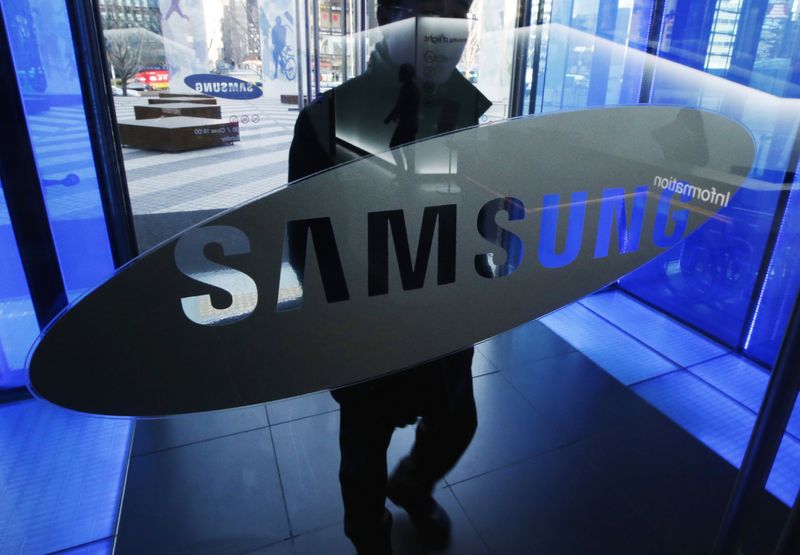Investing.com’s stocks of the week
SEOUL (Reuters) - Samsung Electronics Co Ltd (KS:005930) on Thursday reported its first annual earnings decline in three years, as strong chip earnings failed to make up for weakness in the South Korean giant's smartphone business.
The semiconductor division was a bright spot as Samsung posted fourth-quarter operating profit of 5.3 trillion won ($4.88 billion), in line with the 5.2 trillion won profit the firm guided for earlier this month.
The result put the firm's 2014 profit at 25 trillion won, down from a record 36.8 trillion won in 2013 and the lowest since 2011, as the world's top smartphone maker battles cheap Chinese rivals and a resurgent Apple Inc (O:AAPL).
"Uncertainties for global business conditions will likely grow further in 2015 due to the slowing Eurozone economy and financial risks in emerging countries," Samsung said in a statement.
The semiconductor division's profit stood at 2.7 trillion won, its highest in more than four years, helping Samsung recover from a 60 percent drop in operating profit in the third quarter. Samsung said it saw healthy demand for memory chips, used in servers and handsets including Apple iPhones, as well as improved sales from its system chips business.
While this was enough to lift earnings overall from the previous quarter, the cashcow mobile division remained a worry. Earnings from smartphones, tablets and other mobile gadgets fell 64 percent annually in the October-December period to 1.96 trillion won.
It was the division's fifth consecutive quarter of decline, a stark contrast to Apple's record-breaking 74.5 million iPhone sales in the three months to Dec 27 on the back of the success of its big-screen iPhone 6 and 6 Plus.
Mobile's share of Samsung's operating profit fell from almost 70 percent in 2013 to about 58 percent last year.
Samsung said its smartphone and tablet shipments declined in the fourth quarter, although it reported higher average prices thanks to sales of the Galaxy Note 4 phablet. Samsung did not release figures on smartphone sales.
Apple's market share in Samsung's home turf of South Korea reached a record 33 percent in November, according to researcher Counterpoint, and the U.S. firm's huge gains in China, the world's biggest smartphone market, suggest it is rapidly gaining ground on the market leader.
Samsung tipped demand for smartphones and tablets to fall sequentially in the first quarter due to seasonal factors, despite the launch of new products like mid-tier Galaxy A devices.
Analysts expect Samsung to report its second straight annual profit decline this year, unless it can reinvigorate the mobile division.
The company said it would pay an end-2014 dividend of 19,500 won per common share, up 41 percent from the end-2013 dividend of 13,800 won per share.
